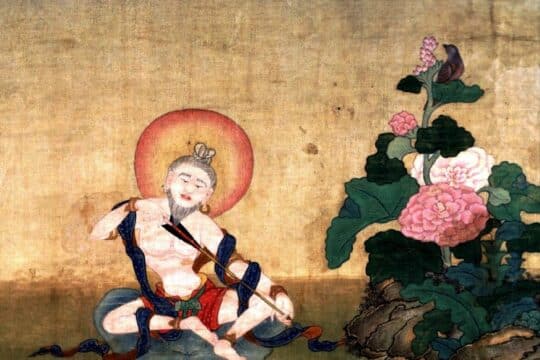Saraha was a mahasiddha, a founder of the mahamudra tradition of Indian tantric Buddhism, and, along with Tilopa, Krishnacharya, and others, a key figure in what is sometimes called the Sahajayana movement. He had a profound influence on later thinkers and practitioners in India such as Kabir and Guru Nanak and on Tibetan masters from Marpa and Milarepa to Longchenpa and Tsongkapa to Chögyam Trungpa and the Fourteenth Dalai Lama.
Dr. Jackson’s new book on Saraha’s life and writings will be brought out by Shambhala Publications next year.

















